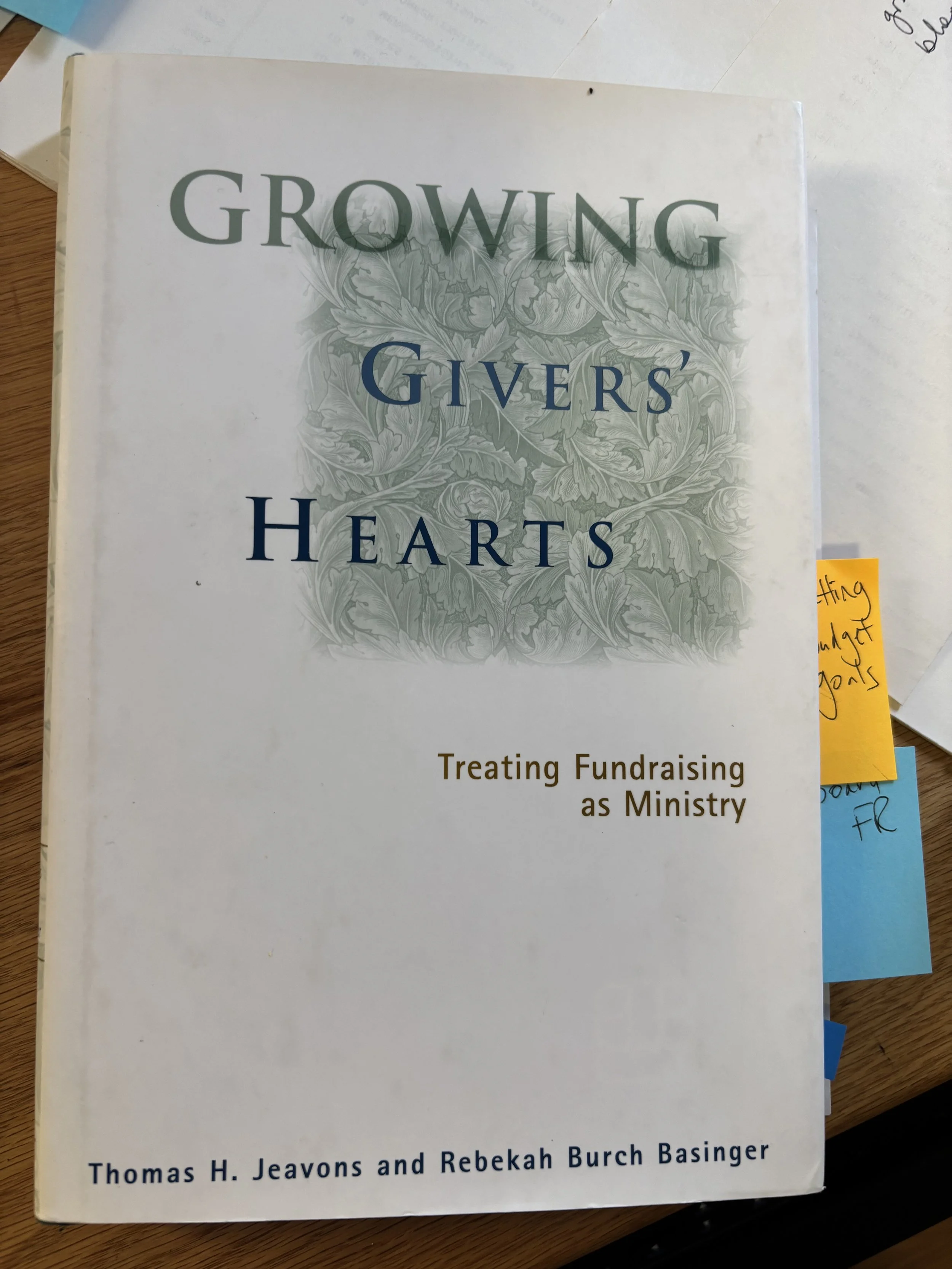Setting the church budget: Part 2
First, a gentle reminder that talking about money is hard. Pray early, pray often and be kind to yourself and others in the budget process.
Our best giving comes from gratitude, grounded in trust in God and full of hope for how God will act in future. People know when a budget results from fear and anxiety. A good budget cultivates trust in people, showing gratitude for how people are sharing what God has given them.
How then does a congregation set the church budget?
I am indebted to Rebekah Burch Basinger and the late Thom Jeavons for their book Growing Givers’ Hearts: Treating Fundraising as Ministry. I don’t throw the term “life changing” around carelessly; this book changed the course of my studies and vocation more than twenty years ago now.
The section titled “The Importance of Setting Realistic Goals” still has me nodding in agreement and saying “yes” out loud as I reread it.
Cutting the budget
A culture of scarcity might draft the budget based solely on last year’s giving rather than on vision. Cuts create a self-fulfilling downward spiral that’s difficult to correct. Draft the budget based on what God wants your congregation to do, rather than on last year’s giving.
Sadly, lowering the budget does not increase giving. Asking for less means receiving less. In my experience, people don’t look at the church budget and say “that’s the ticket, we’ve reduced our pastor to half-time and cut the amount our congregation shares with the wider community. That’s a ministry I can support whole-heartedly!” and write a big cheque. Quite the contrary, such a budget sends a message that when times are tough, the church shares less. Church members might get the message that in tough times, they can share less too.
“We can’t ask people to give more.” Why? Uncomfortable? Ashamed? Taboo? It’s super important to figure out why it feels easier to cut the budget than to ask people to give generously.
Overconfidence
However, a “casual overconfidence in God’s sufficiency can be just as destructive.” (p. 75) Spiritual discernment understands “the subtle but crucial difference between trusting in God’s goodness to meet legitimate needs and framing God as a sort of sugar daddy in the sky.” (p. 75) Amen!
Hence the need for a careful discernment process of what God is calling your congregation to do. What resources does your congregation have available? I don’t see too much overconfident budgeting these days, in terms of unrealistically high expectations for giving. What I see more often is an overconfidence that the church can survive on reserve funds.
Over/under
If I was imagining a church budget, I would play with different scenarios and questions:
Who are our neighbours?
What would happen if the church didn’t have any reserve funds?
What if this was a church plant without a building?
What if this church had a mortgage? Or didn’t have one?
What will our church look like in five years?
What would our church do with a million dollars?
The best budgets, like other types of decisions, result from prayerful spiritual discernment.
Closing Prayer
A budget can’t be solved in a single blog post but I do pray that your budget setting will be a spiritual exercise.
I pray that God will help you to be generous, guided by the Holy Spirit.
I pray that God will help you to be grateful for:
the past generosity that build your congregation
God’s sustaining presence
God’s goodness and mercy which is new every morning.
I pray that by God’s grace you follow Jesus every day, trusting that there will always be enough to share.
Amen.

